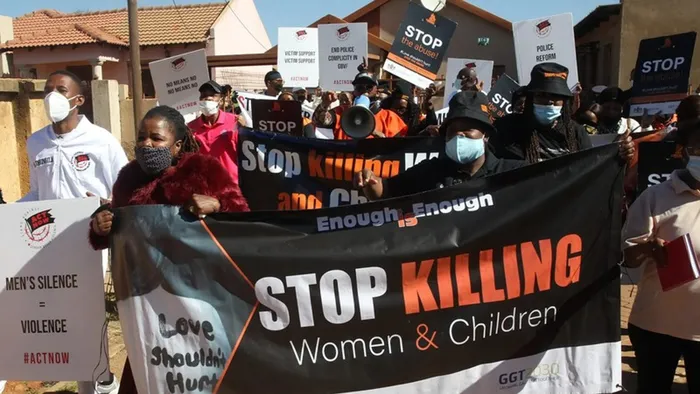[Rek jou cheque] Going beyond physical harm: Financial abuse is undermining women’s freedom

Unite: More must be done to stop all forms of abuse. Picture: supplied
Goals from the 2030 Sustainable Development Global Agenda include achieving gender equality and give women access to economic/ financial resources.
Sorry to disappoint, but we are nearly in 2025, and I am positive that we are nowhere close to reaching these targets.
Women are the greatest victims of gender-based violence (GBV) and the most economically unequal members of society.
Every August we celebrate Women’s Month and every year from 25 November to 10 of December, South Africa and the rest of the world highlights this global crisis through the 16 Days of Activism against Gender-Based Violence campaign.
As a society, physical, verbal and sexual abuse are the types of assault we recognise most.
I think it’s because we can “see” it. However, we cannot overlook another common form of ‘violence’ – and that is financial abuse.
Abuse is about control, so it should not shock us to know that financial abuse accounts for 99% of domestic abuse.
Financial abuse is when one person in the relationship (usually the man) has power over their partner’s freedom of spending and controls how they distribute money for their own personal gains.
Although financial abuse does not cause bodily harm, it should not be overlooked as many women are forced into a “financial prison” by their partners.
It is unfortunate that financial abuse is normalised and is often silent. We cannot allow this to continue in our communities.

Here are six signs that indicate you may be in a financially abusive relationship:
1. You are often required to carry the household’s financial load even though you are both earning money.
2. You are being forced to hand over your salary or any income you earn.
3. Your partner encourages, and sometimes even threatens you to leave your job so you can be financially dependent on them.
4. They control everything about the household finances, even your bank account.
5. They run up debt in your name – and you are responsible to make the repayments.
6. Your partner will belittle you and your intelligence and make you feel like you are not capable of handling money.
Financial abuse coupled with emotional or physical abuse is used to maintain power and control in a relationship. It’s almost always the reason many women trying to leave abusive situations, don’t.
Often, women stay in abusive relationship because they simply don’t have enough money to get a place of their own for them and their children and/or have no way of supporting themselves and the children.

Charnel Collins, CEO National Debt Advisors (NDA) shares tips to help women cope with and get out of a financially abusive relationship:
– Start collecting all of the physical and electronic documents for any credit agreement that is in your name
– Ensure that the contact details such as your cellphone number or email address on any agreement are yours and that correspondence will be delivered directly to you
– Get your credit report so you know what your debt exposure and credit-worthiness looks like. It is important to note that you are allowed to get to one free credit report, from every credit bureau, once a year
– Improve your financial literacy and empower yourself by visiting sites that offer information about how to handle your finances
– You are not alone in this situation, find someone who you can trust and talk to.
Getting out of any abusive relationship (financial included) is extremely difficult. One of the questions most often asked is “why didn’t she leave”.
If we are all honest with ourselves, we know that this is easier said than done.
Financial abuse is not something that gets better over time if nothing is done about it. Speak to someone you can trust. Start putting a plan in place.
Take your power back. Even if it is one small step at a time.
Related Topics: